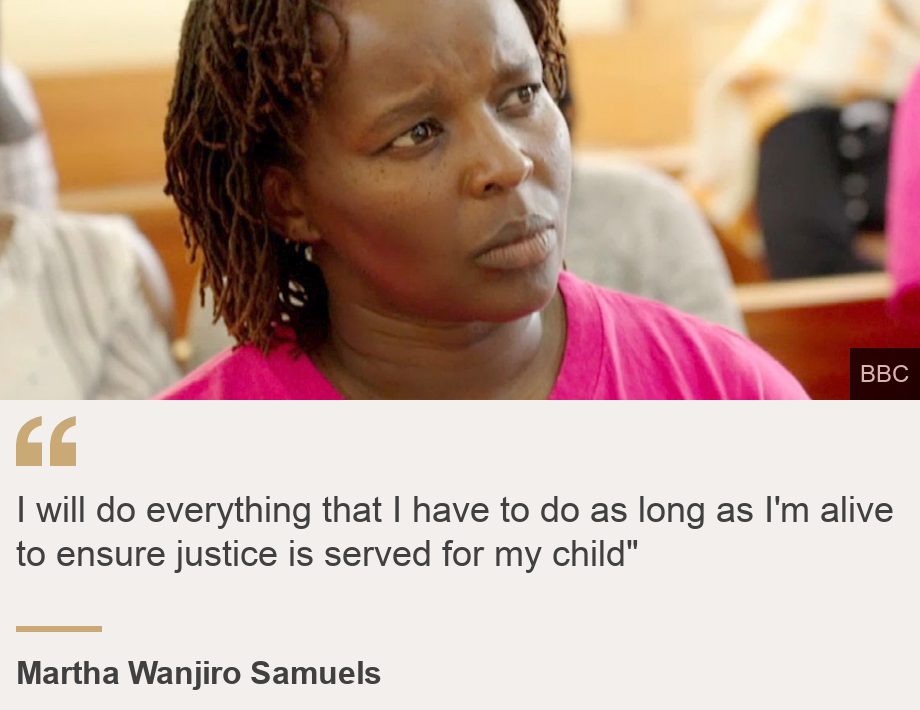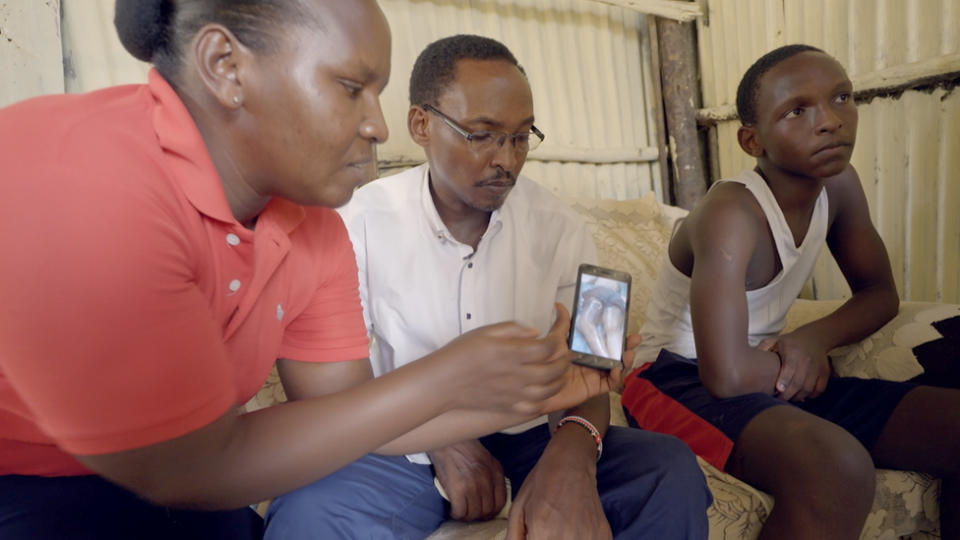
“The hidden epidemic: School floggings in Kenya” sheds light on a distressing issue that has been plaguing Kenyan schools for years. While corporal punishment is illegal in the country, it remains a prevalent practice in many educational institutions. Children endure physical punishment in the form of floggings with sticks or belts, resulting in severe physical and psychological consequences. This article emphasizes the urgency of stricter enforcement of the ban on corporal punishment, as well as the importance of promoting education and awareness on alternative disciplinary methods in schools. By addressing this hidden epidemic, we can work towards creating safer and more nurturing learning environments for the children of Kenya.
▶ [Kucoin] Transaction fee 0% discount CODE◀
Overview of School Floggings in Kenya
School floggings in Kenya refer to the physical punishment inflicted on children in educational institutions through beatings with sticks or belts. Regrettably, this practice is considered a hidden epidemic, with a prevalence that extends far beyond what is reported. Despite the fact that corporal punishment in schools is illegal in Kenya, it continues to be prevalent in many institutions across the country.
Definition and prevalence of school floggings
School floggings involve the use of physical force to discipline students, often resulting in pain and injury. These floggings take various forms, ranging from mild to brutal, and are typically administered on the buttocks or the palms of the hands. Unfortunately, due to the hidden nature of this issue, accurate prevalence data is lacking. However, anecdotal evidence suggests that such floggings occur frequently, leaving a lasting impact on the well-being of the children involved.
▶ [Kucoin] Transaction fee 0% discount CODE◀
Legal status and enforcement of the ban on corporal punishment
Corporal punishment was officially banned in Kenyan schools with the enactment of the Children’s Act in 2001. The Act explicitly prohibits the use of any form of physical punishment on children, both in schools and other settings. However, the enforcement of this ban remains a challenge. Many schools continue to engage in corporal punishment, either due to a lack of awareness of the law or a disregard for its consequences. This calls for stricter enforcement measures to ensure compliance and protect the rights of children in Kenyan schools.
Physical Effects of School Floggings
Injuries inflicted on children
School floggings can cause a wide range of injuries, varying in severity depending on the force and frequency of the beatings. Common injuries include bruises, cuts, welts, and even fractures. These physical wounds not only cause immediate pain and suffering but can also result in long-lasting consequences for the physical well-being of the children subjected to them. Furthermore, the use of objects such as sticks or belts increases the risk of harm to internal organs, posing even greater dangers to the health of the victims.
Long-term health consequences
Beyond the immediate injuries, school floggings can also lead to severe long-term health consequences. The repeated trauma inflicted on children’s bodies can disrupt their development, potentially causing lifelong health issues. Chronic pain, musculoskeletal problems, and chronic stress are among the anticipated long-term effects of this form of punishment. Moreover, such physical abuse can contribute to a vicious cycle of poor mental health, as the physical pain and suffering endured can exacerbate psychological distress.
Psychological Effects of School Floggings
Trauma experienced by children
School floggings subject children to a traumatizing experience. The physical pain, fear, and humiliation associated with these punishments leave deep emotional scars. Victims often experience symptoms of post-traumatic stress disorder (PTSD), such as flashbacks, nightmares, and hyperarousal. The psychological trauma inflicted by school floggings can have a long-lasting impact on the mental well-being and overall development of the children involved.
Impact on mental health
The psychological effects of school floggings extend beyond immediate trauma. Continued exposure to corporal punishment can contribute to the development of various mental health issues, including anxiety, depression, and behavioral problems. Children who experience regular physical punishment at school are more likely to exhibit aggression, antisocial behavior, and lower levels of empathy. These consequences further highlight the urgent need for alternative disciplinary methods to protect the mental health of students.
Effects on self-esteem and confidence
School floggings can have profound effects on a child’s self-esteem and confidence. Being physically punished in front of peers can lead to feelings of shame, embarrassment, and a negative self-perception. Children subjected to corporal punishment may develop a diminished sense of self-worth, limiting their ability to thrive academically, socially, and emotionally. It is essential to recognize that positive disciplinary methods can foster a healthy sense of self-esteem and confidence, creating an environment that promotes growth and achievement.
Causes and Justifications for School Floggings
Traditional beliefs and cultural norms
One of the contributing factors to the prevalence of school floggings in Kenya is rooted in traditional beliefs and cultural norms. Some communities adhere to practices that view physical punishment as an acceptable means of discipline. These deeply ingrained beliefs perpetuate the cycle of violence, making it challenging to eradicate this harmful practice from schools.
Disciplinary practices in Kenyan society
The disciplinary practices in Kenyan society play a significant role in the perpetuation of school floggings. Traditional methods of discipline at home, which often involve physical punishment, influence the approach taken by schools. The normalization of corporal punishment within society at large makes it more difficult to challenge the status quo and implement alternative disciplinary methods in educational institutions.
Lack of awareness of alternative disciplinary methods
The lack of awareness and education regarding alternative disciplinary methods contributes to the continued use of school floggings. Many teachers and school administrators may not be aware of the negative consequences associated with corporal punishment and the availability of alternative approaches. Providing comprehensive training and resources to educators is vital in order to shift mindsets and foster the adoption of positive and effective disciplinary strategies.
Efforts and Campaigns Against School Floggings
Role of government and legislation
The government of Kenya has a crucial role to play in eradicating school floggings. Stricter enforcement and implementation of existing legislation prohibiting corporal punishment are imperative. Additionally, the government must allocate resources for awareness campaigns, training programs, and the development of policies that promote non-violent disciplinary methods in schools. By actively championing the rights of children and prioritizing their well-being, the government can lead the way toward ending this harmful practice.
Engagement of NGOs and advocacy groups
Non-governmental organizations (NGOs) and advocacy groups have played a vital role in raising awareness about the negative impact of school floggings. These entities work tirelessly to protect the rights of children and advocate for policy changes that prioritize non-violent disciplinary methods in schools. Through community engagement, grassroots initiatives, and collaboration with educational institutions, NGOs and advocacy groups effectively contribute to the efforts against school floggings.
Educational programs promoting alternative disciplinary methods
Education is a key element in eliminating school floggings. Educational programs should be implemented to equip teachers and parents with knowledge and skills in alternatives to corporal punishment. Training sessions can introduce positive disciplinary methods, conflict resolution strategies, and effective communication techniques that yield better outcomes for both students and educators. By investing in such educational initiatives, schools can create a nurturing and supportive environment that fosters the holistic development of students without resorting to violence.
Challenges in Eradicating School Floggings
Resistance from schools and teachers
One of the primary challenges in eradicating school floggings is the resistance from schools and teachers. Some educators may argue that physical punishment is an effective form of discipline, rooted in tradition and cultural beliefs. Overcoming this resistance necessitates a collective effort to transform mindsets and beliefs surrounding disciplinary practices. Continuous dialogue, training, and support are crucial in empowering educators to embrace non-violent disciplinary strategies that prioritize the well-being of students.
Lack of resources and training for teachers
Insufficient resources and training pose a significant obstacle in the fight against school floggings. Many schools, particularly in rural areas, lack the necessary training materials, support systems, and personnel to implement alternative disciplinary methods effectively. Addressing this challenge requires increased government investment in education, the provision of comprehensive training programs, and the allocation of resources that enable educators to adopt and sustain non-violent disciplinary practices.
Societal attitudes and resistance to change
Deeply embedded societal attitudes and resistance to change present ongoing challenges. Addressing these attitudes requires comprehensive public awareness campaigns that educate communities about the harmful effects of school floggings. Cultural sensitivities must be taken into account, emphasizing the importance of maintaining discipline while respecting children’s rights. By fostering a broader understanding of the negative consequences of corporal punishment, societal attitudes can gradually shift towards embracing alternative disciplinary practices in schools.
Case Studies: Experiences of Students
Interviews with victims of school floggings
Interviews with victims of school floggings provide firsthand insight into the traumatic experiences these children endure. The narratives of those who have experienced corporal punishment shed light on the emotional and physical toll it takes on their lives. By sharing their stories, these individuals contribute to the conversation surrounding school floggings, amplifying the urgency for change and the need for more comprehensive support for affected students.
Personal stories sharing the impact of corporal punishment
Personal stories detailing the impact of corporal punishment on individuals’ lives further emphasize the need to eradicate school floggings. These stories give a voice to those who are often silenced, shedding light on the long-lasting consequences and the barriers to healing. By sharing these personal narratives, we cultivate empathy and understanding while motivating action to protect children from harm.
Importance of Education and Awareness
Promoting non-violent disciplinary methods
Education and awareness are paramount in promoting non-violent disciplinary methods in schools. By imparting knowledge regarding the negative effects of school floggings, teachers, parents, and community members can actively pursue alternative approaches to discipline. Encouraging the adoption of positive disciplinary methods, such as effective communication, conflict resolution, and restorative justice practices, fosters a safe and supportive learning environment that promotes healthy development for all students.
Educating parents on the effects of corporal punishment
Educating parents about the effects of corporal punishment is essential in breaking the cycle of violence. Many parents may not be aware of the long-term physical and psychological impacts that floggings can have on their children. By providing parents with information and alternative disciplinary strategies, individuals can make informed decisions that align with their children’s well-being, ultimately contributing to a more nurturing family environment.
Creating safe and supportive school environments
Creating safe and supportive school environments is fundamental in eradicating school floggings. Schools must foster a culture of respect, empathy, and understanding, creating an environment where children feel safe and valued. Implementing anti-bullying programs, peer mediation, and social-emotional learning initiatives can lay the foundation for a supportive school environment that rejects violence as a means of discipline.
International perspectives on School Floggings
Experiences of corporal punishment in other countries
School floggings are not unique to Kenya, but instead, they are a global issue affecting countless countries. Numerous countries, despite legal provisions banning corporal punishment, still struggle with its prevalence within educational institutions. Exploring international experiences sheds light on the challenges faced by different societies and can provide valuable insights into effective strategies and policies to eradicate school floggings.
Comparisons with laws and regulations worldwide
Comparing laws and regulations on corporal punishment worldwide is essential in understanding the progress made and identifying areas for improvement. It is crucial to analyze the legal frameworks of countries that have successfully suppressed school floggings, highlighting best practices that can be adapted and applied in Kenya. Understanding the diverse approaches taken by different nations contributes to the development of comprehensive strategies for ending the use of corporal punishment in schools.
Conclusion
The issue of school floggings in Kenya is a deeply concerning problem that demands urgent attention. Despite the legal prohibition of corporal punishment, its prevalence persists, causing severe physical and psychological harm to children. Efforts must be made to enforce the ban more effectively while promoting education and awareness on alternative disciplinary methods in schools. Stricter enforcement measures, engagement of NGOs and advocacy groups, and comprehensive educational programs will be crucial in achieving this goal. It is incumbent upon individuals, communities, and the government to prioritize the well-being and rights of children, actively working towards creating safe and supportive school environments that reject violence as a means of discipline.
RELATED POSTS
View all








